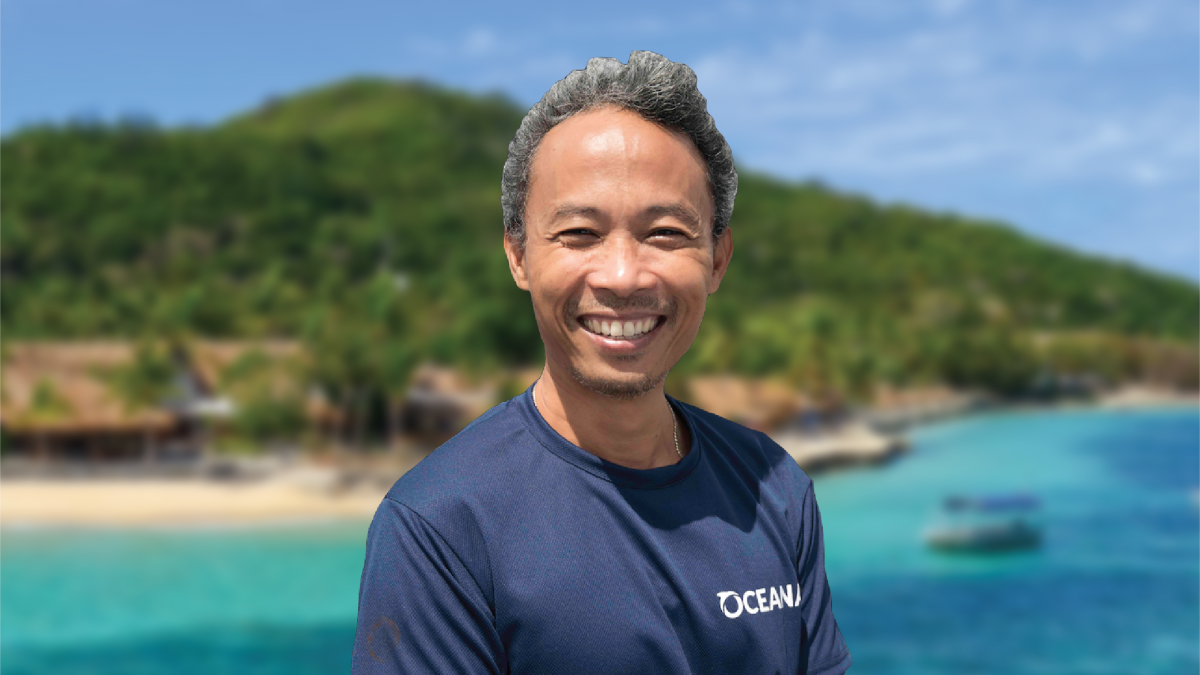October 23, 2020
Scientist Spotlight: Dr. Badi Samaniego
Dive deep into the minds and hearts of our scientists on board MV Discovery Palawan. We are featuring the Expedition Team’s Assessment Leader, Dr. Badi Samaniego, for our maiden issue.

Dr. Badi R. Samaniego
UPLB BS Agriculture (Major in Horticulture)
UPLB MS Zoology (Minor in Environmental Science)
UPLB PhD Environmental Science
What made you decide to be a marine scientist?
I’ve always been in love with nature and interested in animals, mountains, and the sea. My father’s interest must have rubbed off on me as he was a zoologist and fisheries graduate himself and taught in the university. I initially wanted to be a farmer and grow fruit trees in my own orchard, hence my agriculture degree but that did not work out.
My interest in the ocean was tickled after joining various school fieldtrips of other colleges as a volunteer. I’ve been to Calauit Island with a veterinary medicine class and to Turtle Islands with the Pawikan Conservation Project of the then Protected Areas and Wildlife Bureau of DENR. It was after working under this project for several years that I decided to pursue my graduate studies in zoology.
What’s the best part about being a scientist?
Knowing that you are a part of exploring, understanding, and revealing new things. You will never run out of things to learn. The reward is fulfilling when after all your efforts, you know that you have contributed towards environment protection and, ultimately, the betterment of communities that depend on these resources.
What advice can you give to aspiring scientists?
We depend on our environment for the food we eat and the services these ecosystems provide. It is only logical that we care for our environment to live healthy and happy lives. Science is a tremendous tool to understand how our environment works and how we can balance its use and care. It teaches us how much we can take from the environment, how not to irreversibly destroy ecosystems, and how to heal already damaged systems. It should be a guide to direct us towards proper ways of caring for our environment and addressing current issues. Science-based policies and strategies have greater chances of success in protecting and conserving ecosystems over strategies motivated by other ends.
